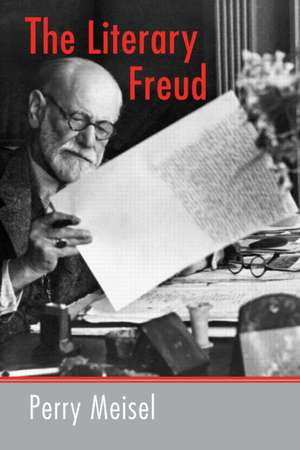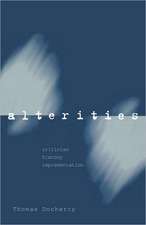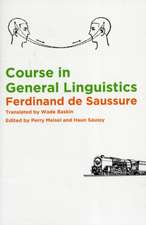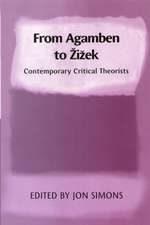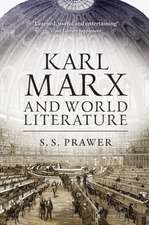The Literary Freud
Autor Perry Meiselen Limba Engleză Paperback – 19 dec 2006
As for Freud's influence on others, it, too, is structured like a literary history, argues Meisel. He discusses Freud's influence on modernism, Strachey's Standard Edition (once again the subject of debate with the recent Penguin retranslations), and Freud's influence on Michel Foucault. Finally, we explore the relationship of Freud and literature. Does an understanding of how Freud himself writes and influences help us to read literature and interpret it anew?
Preț: 246.33 lei
Preț vechi: 348.53 lei
-29% Nou
Puncte Express: 369
Preț estimativ în valută:
47.14€ • 50.40$ • 39.30£
47.14€ • 50.40$ • 39.30£
Carte tipărită la comandă
Livrare economică 18 aprilie-02 mai
Preluare comenzi: 021 569.72.76
Specificații
ISBN-13: 9780415981453
ISBN-10: 041598145X
Pagini: 240
Dimensiuni: 152 x 229 x 13 mm
Greutate: 0.4 kg
Ediția:1
Editura: Taylor & Francis
Colecția Routledge
Locul publicării:Oxford, United Kingdom
ISBN-10: 041598145X
Pagini: 240
Dimensiuni: 152 x 229 x 13 mm
Greutate: 0.4 kg
Ediția:1
Editura: Taylor & Francis
Colecția Routledge
Locul publicării:Oxford, United Kingdom
Cuprins
Textual Note. Preface 1. A Reception History 2. 'Sensations' and 'Ideas' 3. Psychoanalysis and Aestheticism 4. A Supplement to the History of Modernism and Psychoanalysis 5. Strachey the Apostle 6. Freud and Foucault 7. Representation and Resistance in Mansfield, James, and Hardy 8. Biography and Literary History 9. The Ontology of the Pornographic Image 10. Freud, Bakhtin, Shakespeare Works Cited. Index
Notă biografică
Perry Meisel is Professor of English at New York University. His many books include The Cowboy and the Dandy: Crossing Over from Romanticism to Rock and Roll, The Myth of the Modern: A Study in British Literature and Criticism After 1850, Bloomsbury/Freud: The Letters of James and Mix Strachey, 1924-1925, and Freud: A Collection of Critical Essays.
Recenzii
"It is by far the best treatment of the literary Freud available, and should be widely read and used, both by scholars and students of literature and of psychoanalysis." -- Harold Bloom, Yale University
"A striking, innovative, brilliant work that will strongly influence future discussion in Freud studies." -- David Mikics, University of Houston
"A striking, innovative, brilliant work that will strongly influence future discussion in Freud studies." -- David Mikics, University of Houston
